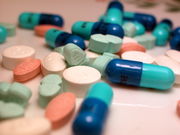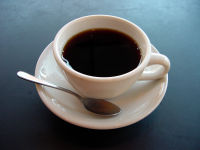

A drug is any biological substance, synthetic or non-synthetic, that is taken for non-dietary needs. It is usually synthesized outside of an organism, but introduced into an organism to produce its action. That is, when taken into the organisms body, it will produce some effects or alter some bodily functions (such as relieving symptoms, curing diseases or used as preventive medicine or any other purposes).
Note that natural endogenous biochemicals (such as hormones) can bind to the same receptor in the cell, producing the same effect as a drug. Thus, drug is merely an artificial definition that distinguishes whether that molecule is synthesized within an organism or outside an organism. For instance, insulin is a hormone that is synthesized in the body; it is considered as a hormone when it is synthesized by the pancreas inside the body, but if it is introduced into the body from outside, it is considered as a drug.
It is a substance which is not food,[1] and which, when ingested, affects the functioning of the mind, or the body, or both. However, under the philosophy of Chinese medicine, food is also considered a drug as it affects particular parts of body and cures some diseases. Thus, food does satisfy the above definition of drug so long as ingestion of it would alter some bodily functions.
Contents |
Drugs used as medicines
A medication is a drug taken to cure or reduce symptoms of an illness or medical condition, or may use as preventive medicine that has future benefits but does not treat any existing or pre-existing diseases or symptoms. Dispensing of medication is often regulated by the government into three categories -- over the counter (OTC) medications, which are available in pharmacies and and supermarket's without special restrictions, behind the counter (BTC), which are dispensed by a pharmacist without needing a doctor's prescription, and Prescription only medicines (POM), which must be prescribed by a licensed medical professional, usually a physician.
Most OTC medications are generally considered to be safe enough that most people will not hurt themselves if they are taken as instructed. In UK, BTC medicine is called pharmacy medicines which can only be sold in registered pharmacies, by or under the supervision of a pharmacist. However, the precise distinction between OTC and prescription depends on the legal jurisdiction.
Medications are typically produced by pharmaceutical companies and are often patented to protect their exclusive rights to produce them, but they can also be derived from naturally occurring substance in plants called herbal medicine. Those that are not patented (or with expired patents) are called generic drugs since they can be produced by other companies without restrictions or licenses from the patent holder.
Recreational drugs
Recreational drug use is the use of psychoactive drugs for recreational purposes rather than for work, medical or spiritual purposes. Much controversy has arisen over recreational drug use, and governments across the world have regulated the consumption and/or distribution of drugs in the name of fighting drug abuse, but many countries' laws are criticised for being passed under ulterior motives or for being hypocritical.
List of drugs
See list of drugs for an alphabetical list of drugs by name. Many drugs have more than one name and, therefore, the same drug may be listed more than once. Brand names and generic names are differentiated by the use of capital initials for the former.
Footnotes
- ^ Some substances, such as beers, wines, and some fungi, are sometimes regarded as both foods and drugs
See also
External links
- Health Care - Drugs: prescription and medication
- History of Drugs From High Times Encyclopedia Of Recreational Drugs - 1977




 216.73.216.2
216.73.216.2 User Stats:
User Stats:
 Today: 0
Today: 0 Yesterday: 0
Yesterday: 0 This Month: 0
This Month: 0 This Year: 0
This Year: 0 Total Users: 117
Total Users: 117 New Members:
New Members:
 216.73.xxx.x
216.73.xxx.x
 Server Time:
Server Time: